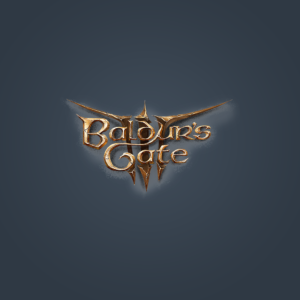 You don’t need another review telling you that Baldur’s Gate III is a revolutionary game. It’s taken the market by storm, to the point where other game studies are panicking. Some superlatives:
You don’t need another review telling you that Baldur’s Gate III is a revolutionary game. It’s taken the market by storm, to the point where other game studies are panicking. Some superlatives:
- “A new gold standard“
- “A new high-water mark for CRPGs“
- “A natural 20“
- “Extremely high expectations set for it and has exceeded them“
Etcetera. Just google “BG3 reviews” and you’ll get an earful of praise.
I’ve played through a bit of it (64.9 hours according to Steam), to the point I don’t want to play any more. To me it’s like Sgt. Pepper’s Lonely Hearts Club Band. I find the album pleasant enough, but others seem to think it’s the greatest thing since Mozart. I’m certainly not going to argue that BG3 is a bad game or that you shouldn’t like it, love it, enjoy it, or sing its praises. But I don’t think it’s going to be on my deathbed top ten.
Computer RPGs
I’ve played a lot of fantasy CRPGs. I started in the days of Wizardry on the Apple ][e. I’ve beaten Angband and Nethack (my ascension), I played some of those early SSI D&D games, earlier iterations of the BG series, as well as the Neverwinter Nights series. And many other over the years – Thief, Diablo, DragonAge, Obsidian/Skyrim, and others I’ve forgotten. Of course, I’m just listing fantasy RPGs – there are many others I’ve played. I’ve also played a mountain of tabletop RPGs, since my first D&D boxed set in the late 70s.
Throughout all of these wasted hours, I’ve come to the following general conclusions about CRPGs:
- Fun combat is critical, to the point of eclipsing nearly every other consideration. If combat is boring, the game is bad. This is because CRPGs are about fighting, leveling up, and getting treasures/gear so you can fight harder monsters, lather rinse repeat, final boss, and you’re done. Sometimes a little crafting is included, but that’s how these games work.
- Puzzles suck. They’re rarely intellectually interesting or challenging, but rather consist of the drudge work of hunting buttons, timing jumps, or other unimaginative physics.
- Mazes suck.
- There’s no real roleplaying in CRPGs. There are some choices, dialogue options, etc. but they’re just a narrative veneer over the core combat-improve-combat cycle. Because you’re limited to what’s been programmed, you can’t really go outside the bowling lane guide rails. Combinatorial explosion limits how many options can be offered, as does the cost of art, voice actors, etc. You’re going to run the story the way it’s intended to be told, with maybe a few options but even there…if the devs invest a lot of time creating a beautifully detailed setting, you’re going to be shoe-horned into it one way or another, otherwise you the consumer won’t get enough content for your dollar.
- Romance and sex in CRPGs are the silliest things ever. They are what my 5th grade mind thought romantic relationships were like: you need to earn enough points to advance. The Groundhog’s Day nature of these mechanics – if I choose X, Y, and Z, then my intended will love me – makes me wonder if game developers have ever had relationships.
There are exceptions to these conclusions. For example, the Thief series focuses on stealth, and The Long Dark (not fantasy) is about survival, etc. But in the main, that’s how they work.
And That’s How BG3 Works, Too
For all the hype about how BG3 allows great freedom in play, a galaxy of options, etc. it’s still the same linear track design. Sure, you can choose this companion or that one, and switch on or off certain game realities through your actions, but you’re still funneled to the same choke points.
For example, you need to get the Nightsong at the end of Act II and you must go through the tedious puzzles of the Gauntlet of Shar. The entire narrative is a railroad, not some grand open-world. For what it’s worth, the Fallout or Skyrim games offer as much or more “freedom” as BG3, because while they, too, have a main storyline that advances through specific milestones, there’s more to do outside of it.
I’m not saying this style of play is bad. It’s just reality.
My Pros and Cons List
I’d give the game high marks for character creation flexibility. Particularly since you can use all (I think? certainly nearly all) of the skills, spells, and options in the game. Some previous D&D-based games would let you pick whatever you wanted from the tabletop rules, but some of it was fluff. There’s tons of race/class/subclass options to choose from.
I’m give high marks about the companion options, though not the hirelings. Many of the companions are fun and well-realized. If you don’t like the companion option for a role in your party, you can hire a generic character (who comes without a storyline). But you can’t roll up your own party from scratch, which is what I’d prefer. Most CRPGs do not allow this (Wizardry did), which I’ve never understood. In BG3 you can respec your hirelings, but I didn’t really want a gnomish Wizard and was stuck with that. (He kept getting stuck when others would jump over chasms…eventually I realized I could just throw him across.)
The combat is indeed fun. There are many options based on your party, and the environment offers many options for tactics, using environmental objects, etc. This is what kept me playing, because I enjoyed the tactical puzzles and it was interesting to evolve strategies.
However, the game falls down in a few key areas for me.
The first thing I noticed was how much the camera sucks. I constantly felt like I was walking around with a wide-brimmed hat because I couldn’t look up. It doesn’t handle vertical dimensions very well. There’s also the odd experience of having what feels like an omniscient drone that can fly ahead and see enemies. I’m not sure why the camera is so poorly implemented, but it seems to be a common complaint.
Second, the puzzles are obnoxious. Running around in a semi-confusing three-dimensional maze to push buttons in the Gauntlet of Shar and elsewhere is not an enjoyable past-time for me. I know some people feel that puzzles are really core to the CRPG experience but what exactly is fun about them? Either you have the Rubik’s Cube personality that takes great satisfaction in analysis or you’re going to look them up online and trudge through the solution. The Gauntlet of Shar is enough to make me really hesitate before ever replaying.
I also find he game’s focus on sex a bit strange. Do I really need multiple penis options in character creation? That is perhaps the single most ridiculous thing I’ve ever seen in computer games. I’ve never understood the desire to watch computer-rendered porn, but you can do that in BG3 (this is not unique to this game, but that doesn’t lessen the silliness). You can turn off genitals and sex, but strangely you can’t turn off profanity. I know some people probably think this adds realism or makes characters seem tough and gritty, but in this case it feels like a crutch for bad writing. Yeah, if you’re writing a police procedural about urban gangs, it’s appropriate, but I find it rather immersion-breaking for an other-worldly character to curse like a 21st century American sailor. Moreover, I just don’t enjoy hearing it, but it’s forced on the gamer.
The game’s mandatory save-scumming is disappointing. By this I mean that it’s impossible to play through the game without reloading after disastrous combats. I think this is an artifact of relying on tabletop rules. TTRPGs expect two things that are not present in CRPGs: a human moderator who will keep things fair, and human players who can be infinitely resourceful in solving tactical problems. CRPGs nearly demand a CRPG-engineered ruleset to compensate, but because BG3 is based on D&D 5e, it devolves to a try-again approach. Unless you’re playing a true roguelike (Angband, Nethack, etc.), some save-and-reload is expected, but I think the game is actually designed with this in mind.
I never made it all the way through Act III. When I encountered the Emperor Mind Flayer, I killed him, because that’s what my character would have wanted to do. Mind flayers are evil – indeed, they are paragons of evil in D&D. My character was the noble sort, and I really couldn’t imagine him doing anything else. However, on that there was no freedom – it was an illusory choice, but an illogical one. The mind flayer says “trust me” and my noble character refused to do so, and it was then immediate game over. I didn’t want to reload and be forced to do something I didn’t want to do, and so there the game has set. From what I’ve read, I didn’t miss anything, as there are a lot of forum comments about how Act III is a big letdown.
BTW, is it just me or do the Githyanki look like the Grinch?





















Many hours in the game too.
The morality is twisted, and the F8 gameplay is extremly boring.
Many characters are abhorrents. Even the children ! “What is wrong with the writters?”, I asked to myself at the begining.
Karlach, Halsin and Jaheira are the only one who are not liars, hypocrites or despicable characters (Lazel, kind of too. I mean she is forgivable because of her alien specie’s brainwashing).
Then the Protector’s reveal… Just as you said.
If you take that on you, hoping to free the prince later, it actually happens, but with a HUGE sacrifice and the emperor sulking making your work difficult because you do not want to be evil AF, just to embrace his evil side after that (meaning that, yes : the game want to glorify evil drawn as good).
I share many of your sentiments. “I also find he game’s focus on sex a bit strange. Do I really need multiple penis options in character creation?”
Feels like a case of pandering to special interests were the driving force here.
Thanks, this was a very useful review. After all the BG3 hype I felt weird not being interested in Act 3 to finish the game. I agree with all your sentiments and will now freely move on to other adventures in other worlds…
Same here.. I hit that crossroad when I realized my Paladin was being forced to complete an evil magic ritual involving a murdered persons blood that he’s told not to worry about, all as the only way possible to achieve a good outcome for the Githyanki. There is zero writing in this game for true good.
If you really want to get analytical, you can see anti-christian themes woven all through the game. That’s just my opinion though.. I’m moving on. I’m glad these developers won’t be allowed to make any more games or DLC for this world. It’s a mashup of the old DnD online game, and their Divinity games… It isn’t a true Baldur’s Gate game.